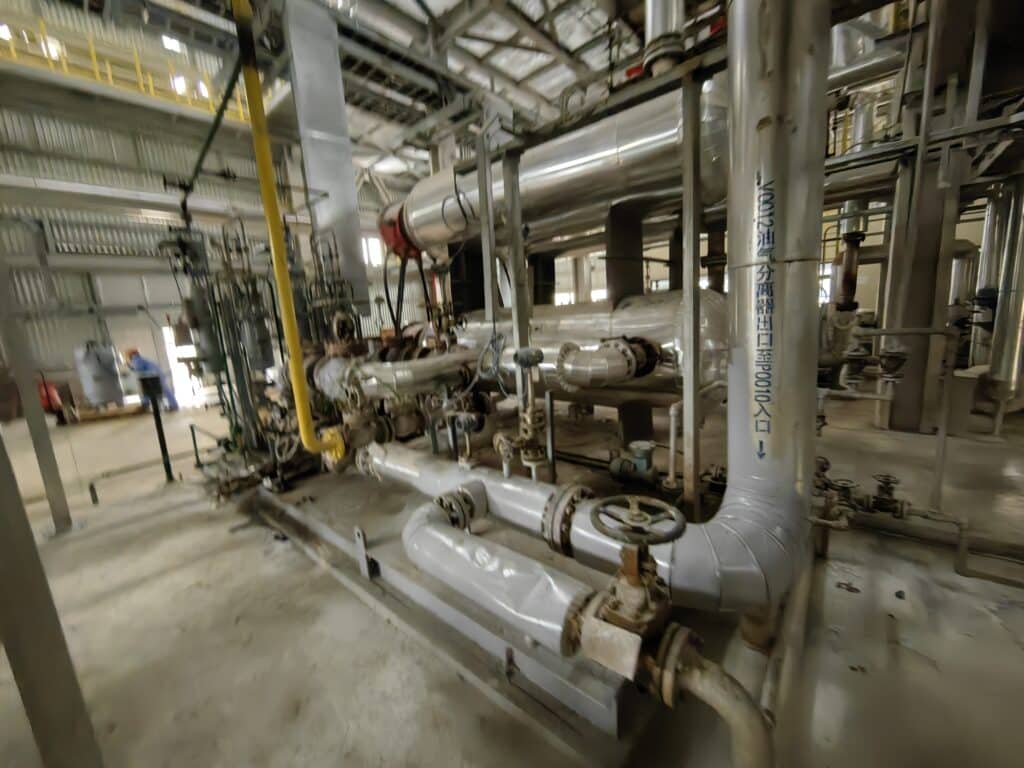
Boilers, as important equipment in industrial production, are widely used in heating, steam generation and heat recovery. With the promotion of energy-saving and environmental protection policies, the efficiency and environmental performance of industrial boilers have become the focus of corporate attention. In this paper, we will discuss how to optimise the production process, improve energy efficiency and reduce environmental impacts through high-efficiency boiler systems.
2. Types and applications of boiler systems
Industrial boilers can be classified into various types according to the usage requirements and fuel types, which include gas boilers, energy-saving boilers and heat transfer oil boilers. Different types of boilers are suitable for different production scenarios, and their features and advantages are as follows:
2.1 gas boiler
As a common thermal energy equipment in modern industry, gas boiler has obvious advantages in energy consumption and environmental protection by virtue of its efficient and clean combustion performance. Gas boilers provide stable heat energy through clean fuels such as natural gas and liquefied petroleum gas, and are widely used in chemical, food processing, textile and other industries.
- vantage: Low emissions, high efficiency and stable operation;
- Applicable Scenarios: Suitable for factories or production lines that require large heat loads.
2.2 Energy-saving boilers
Energy-saving boilers emphasise the effective use of energy and are equipped with advanced combustion control systems and heat recovery technology, which greatly improves the thermal efficiency of the boiler. Through intelligent control and optimised design, energy-saving boilers are able to reduce energy consumption and exhaust emissions.
- vantage: Energy efficient and reduced energy consumption;
- Applicable Scenarios: Suitable for industrial facilities that require long-term, high-load work.
2.3 Thermal oil boiler
Thermal oil boilers are able to reach high temperatures at lower pressures by circulating heat through thermal oil, making them ideal for industries that require precise temperature control, such as plastics, rubber, and chemicals. Compared with traditional steam boilers, thermal oil boilers have better temperature control accuracy and higher thermal efficiency.
- vantage: High temperature operation, precise control, easy maintenance;
- Applicable Scenarios: Industrial production with high temperature heating requirements.
3. Key technologies for boiler system optimisation
In order to improve the overall effectiveness of the boiler system, modern industrial boilers are constantly introducing new technologies to optimise the use of energy and increase the efficiency of the equipment. Below are a few key technologies:
3.1 Intelligent control system
With the development of automation technology, intelligent control of boiler systems has become the key to improving energy efficiency and operational stability. Through intelligent sensors, remote monitoring and real-time data analysis, the boiler system can adjust the combustion state in real time to ensure optimal performance under various operating conditions.
3.2 Heat Recovery and Waste Heat Utilisation
Waste heat recovery technology in boiler systems can effectively reduce energy consumption and provide additional thermal energy to the organisation. For example, installing an exhaust gas heat recovery unit can utilise the exhaust gas emitted from the boiler to heat the incoming water, thereby reducing the boiler's fuel consumption and increasing thermal efficiency.
3.3 Low-NOx combustion technology
As environmental protection requirements increase, low-NOx combustion technology is widely used in boiler systems. This technology reduces NOx emissions by optimising the combustion process, helping companies to reach their environmental targets and reduce environmental pollution.
4. Maintenance and management of boiler systems
Effective boiler management not only extends the life of the equipment, but also ensures that it operates efficiently. Regular inspection and maintenance is a part that cannot be ignored. Maintenance includes boiler cleaning, combustion system inspection, heat exchanger cleaning, etc.
In addition, enterprises should be equipped with professional technicians to find and solve potential problems in the operation of boilers in a timely manner, so as to avoid production interruptions due to equipment failure.
With the increasing demands for energy efficiency and environmental protection in industrial production, choosing an efficient boiler system is crucial for businesses. By optimising boiler equipment, introducing intelligent management technology and heat recovery solutions, companies can significantly improve productivity, reduce energy costs and increase competitiveness.
Our company can non-standard custom products, click the menu bar to contact us to customise, you can also refer to the first!product pageAppreciate our company's products oh!
Recommended Reading:
